The Story of an African Farm
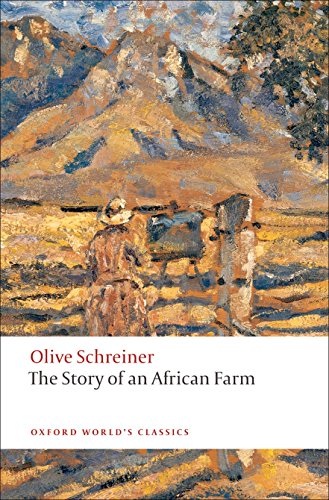
Students are likely to be both surprised and intrigued by the modernity of ideas and situations in the novel. If they are familiar with Victorian literature or culture or have some sense of it, the nature of the sexual relationships, Lyndall’s feminism, the complicated race relations, and one character’s decision to live as a different gender for a period of time, will likely challenge what they think they know about the period, not to mention any impressions they may have about rural South African culture (if any). The book raises questions about gender, sexuality, responsibility, child rearing and abuse, spirituality, the nature of work/labor, and tension between the natural world and man-made world. Long passages of interior thoughts, particularly those of Waldo and Lydall, provide ample philosophical meat on which students may chew. This is a novel that has the ability to transform through testing students’ assumptions and beliefs. Much of what it discusses feels as important in our current place and moment as Schreiner felt it was in hers.
Paradise Lost
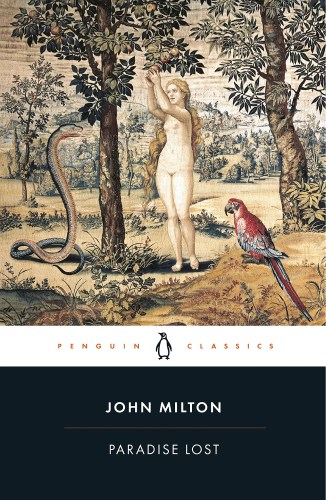
Paradise Lost poses one significant question after another: Are our paths predestined or do we have free will? Is knowledge good or dangerous? To what lengths will we go for companionship and what is going too far? What is a righteous ruler and what is tyranny? Is rebellion against tyranny ever permissible or justifiable? What is Hell and what is Paradise? How does a victor emerge in a war between immortals? These are questions without answers, but ones that matter to students and that they relish the opportunity to struggle through. (Actually, Milton makes it pretty clear that a war between immortals will always end in a draw.)
Phenomenology of Spirit
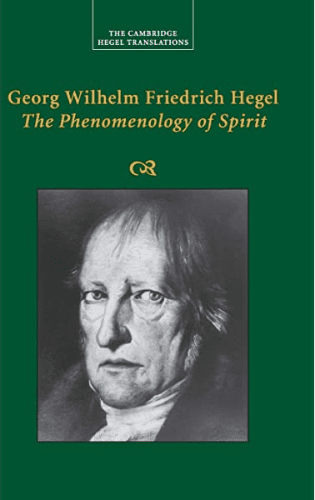
The Phenomenology of Spirit is arguably one of the most difficult philosophical texts to engage with. Partly this stems from Hegel having to, like Plato and Kant before him, invent terms and phrases to describe ideas and concepts for which ordinary language is inadequate. Because of this, there is not always agreement on just what Hegel is doing. Wherever one comes down interpretively, his impact on the history of thought is undeniable. He is the culmination of German idealism, a philosophical movement that starts with Kant and runs through Fichte and Schelling. His treatment of sense certainty has been taken up by many 20th century critiques of empiricism within the analytic tradition, while the master-slave dialectic has proven to be equally influential within 20th century continental philosophy. Of course, the influence Hegel had on Marx’s dialectical materialism, and hence the historical development of Western radical politics, cannot be overstated. Whatever one may ultimately think of Hegel, reading through the Phenomenology is a philosophical experience like none other, full of “moments” of deep insight as one explores with hallucinatory fluidity his processional-thought terrain.
On the Harmony of Religion and Philosophy
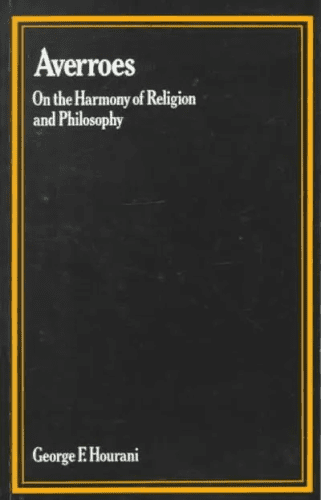
Philosophy, by its very nature of bringing things into question, is at odds with the authority of the political and the religious. So it is no small task that the twelfth century Andalusian philosopher, Ibn Rushd, sets for himself in On the Harmony of Religion and Philosophy. This harmony is achieved by adjusting the Quran to fit Aristotelian philosophical thought through the allegorical interpretation of intransigent passages. That scripture should be interpreted symbolically when it conflicts with demonstrative truths was quite radical for its time, and makes this work important for the history of hermeneutics in general and scriptural interpretation in particular. This work is essential reading for anyone interested in the concept of esoteric and exoteric readings of texts. What is even more radical than Ibn Rushd’s hermeneutic prescriptions, particularly for us, is his insistence that not everyone is capable of the truth, and thus that the truth should not be revealed to everyone equally—for some it can actually be harmful to their ability to believe religious claims and ultimately to their motivation to act morally. Thus this text tangentially brings up questions about the connection between religion and morality.
Borges Selected Stories
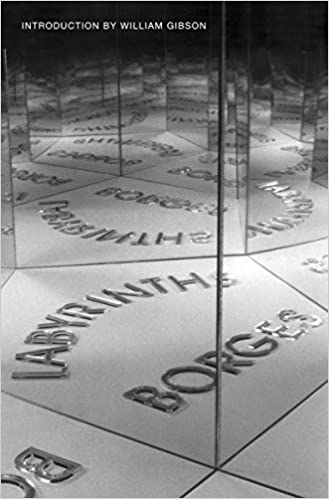
Borges is a writer intoxicated with infinity. He is a writer with secrets buried; you will need to bring a shovel (or the internet). Reading him is like being in an old antique curio shop where you have to go slowly, examining all the unique pieces individually, turning them over to reveal their histories and stories. In a single one of his works he may switch from arcane literary figures, to linguistic theories, to alternate geometries, and back again to heretical theologies. He writes in an almost academic style, and his encyclopedic mind peppers his writing with real sources and references interspersed with fictional ones—making no distinction whatsoever. Anyone interested in infinity, labyrinths, mirrors, esoteric writing, the fine line between fiction and reality, and the porous boundaries of the self will find much treasure in Borges.
Divine Comedy
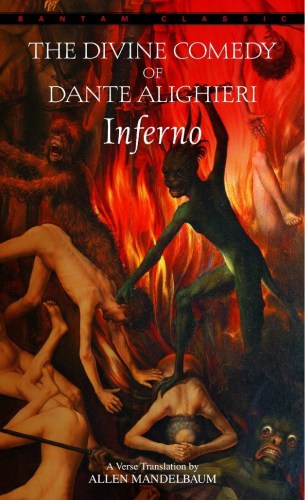
Dante’s Inferno is an entirely new way of looking at the afterlife. Rather than envision a hell full of physical torments and punishments, which was common in his day, Dante envisions an afterlife with a new psychological, moral, and emotional depth to it. The text continues to influence culture centuries later with its ever-relevant questions about the origins and nature of evil. The text explores the depth of human nature and invites the reader to examine a multitude of questions relating to good and evil.
Hebrew Bible and New Testament
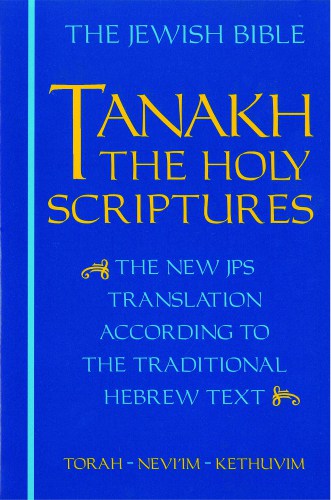
The transformational power of the Hebrew Bible and New Testament is undeniable. Both make claims about the human relationship to the divine, the origins and nature of the world, and the sort of life one ought to live in response to these truths. These texts have shaped entire civilizations and innumerable individual lives, and most students will be aware that much is at stake in discussing them. The challenge in class is make possible a serious engagement that respects the stances taken by a wide variety of students – from those who live within the faith traditions these texts represent, to those who are more or less indifferent to religious truth claims, to those who actively reject them.
Antigone
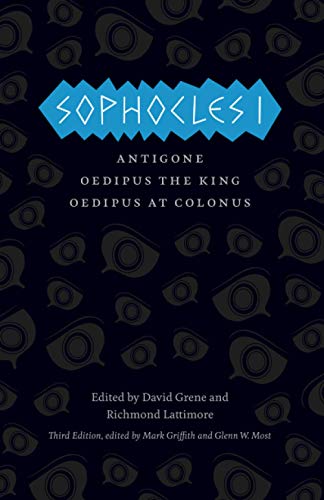
Antigone confronts the audience with the questions- is what is legal always what is just? Creon’s law denies Polyneices a basic burial rite. It is illegal to break this law, but Antigone makes the case that Creon has no right to make this law since is flies in the face of the will of the gods. She refuses to obey an unjust law. The play makes clear that Creon offends the gods with his unjust law and that he perverts the relationship between the living and dead; first by refusing to allow Polyneices to be buried and then again by burying Antigone alive. The play also offers an interesting reflection on leadership and the role of the state.
Confessions
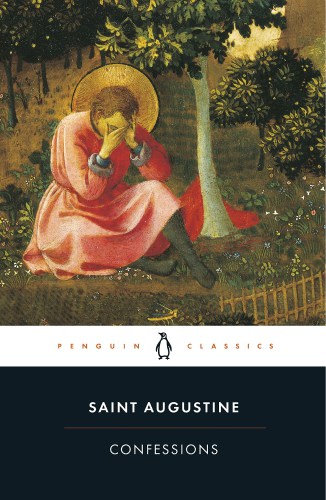
Although much of the narrative of the Confessions happens during Augustine’s time in Italy, this book, so undeniably central to the western canon, is by a writer who was born, grew up, and spent the majority of his career in, Africa. Thus it challenges our conception of where such books originate and our preconceptions about the people who wrote them. It is often called the first autobiography, and presents a remarkable exploration of interiority – questions about the nature of the self, the will, the memory, the intellect, and the soul are central to Augustine’s investigations. Some students are immediately drawn to the beauty of the book as a work of literature, and to the intense self-examination it models.

